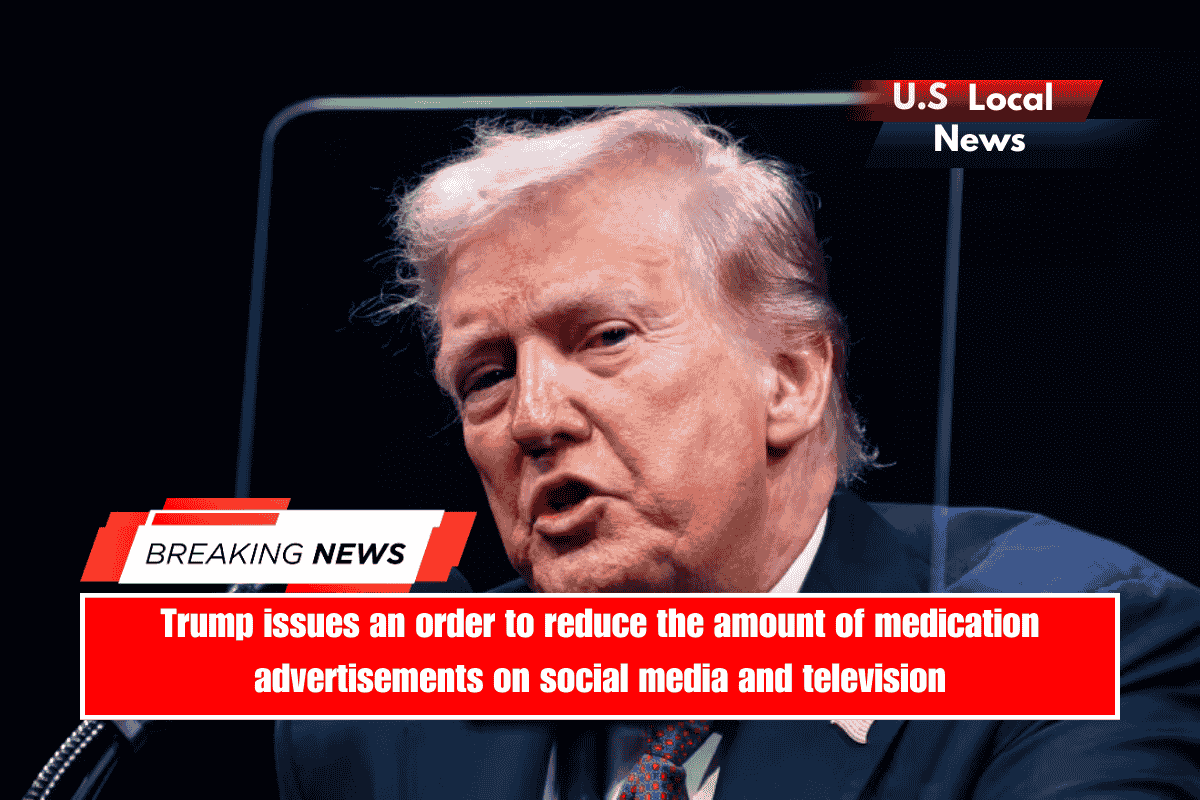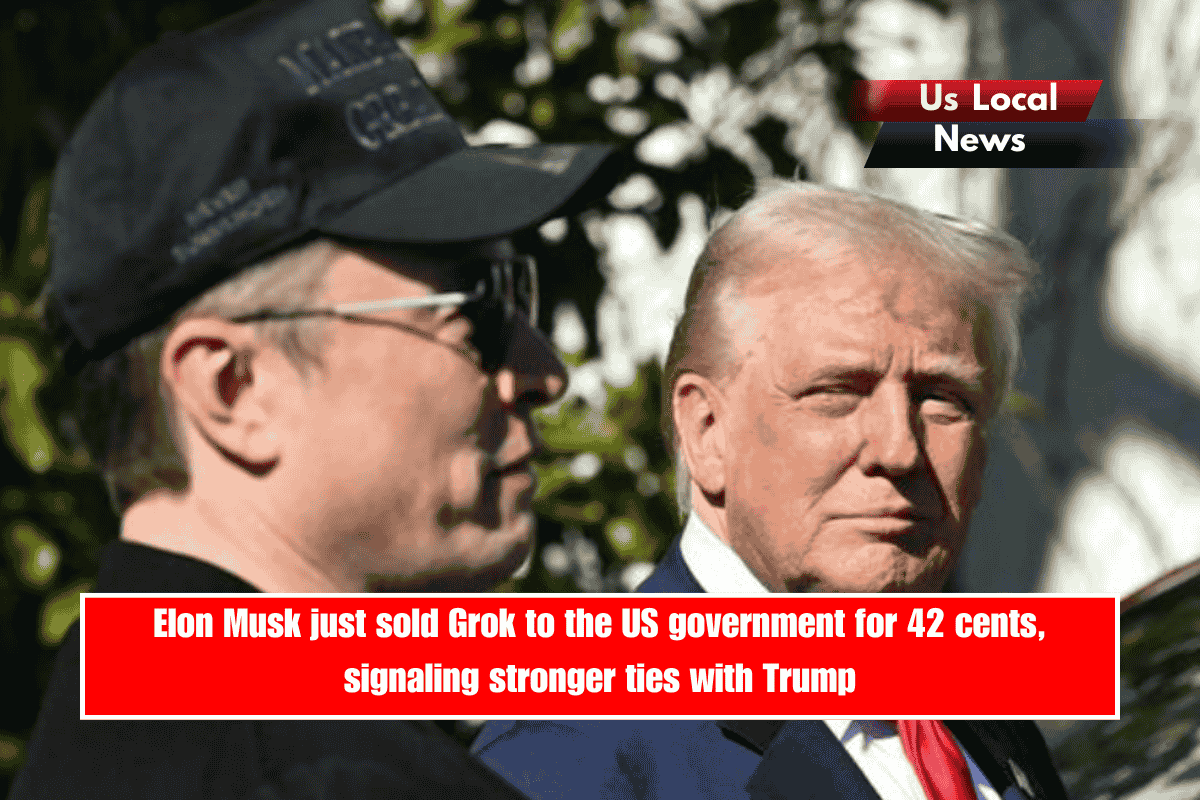President Donald Trump plans to increase scrutiny of pharmaceutical advertisements, both on television and on social media, as his administration accuses companies of misleading the public about medications and side effects.
A directive signed by Trump on Tuesday directs the US Department of Health and Human Services and other agencies to strengthen enforcement of existing regulations governing direct-to-consumer drug advertising, which administration officials say companies have been increasingly violating in recent years.
In another potentially significant move, administration officials announced that the US Food and Drug Administration will develop new regulations that will effectively eliminate a decades-old provision blamed for fueling a surge in drug advertisements on television and other platforms.
It’s another attempt by Trump to make good on his long-standing promise to crack down on the pharmaceutical industry. His administration is already pressuring drug companies to sell more of their products directly to consumers in an effort to reduce prices. In July, Trump sent a letter to 17 drug company CEOs directing them to participate in programs that allow them to sell certain drugs directly to consumers or businesses at “Most Favored Nation” prices, which refers to the lowest price paid in a peer country.
Health and Human Services Secretary Robert F. Kennedy Jr. has also stated that he is opposed to television drug advertisements, stating on X last year that if Trump were elected, he would seek to ban pharmaceutical advertising.
The memorandum falls far short of demanding a complete prohibition. However, administration officials earlier on Tuesday argued that the effort to strengthen enforcement and eventually require more extensive disclosures constituted the “strongest, boldest action that we can take” to ensure “patients have adequate safety information on pharmaceutical ads.”
Current regulations require that drug advertisements not create a “misleading impression” and provide a “fair balance” of information. However, FDA enforcement has been lax in recent years, according to a senior administration official who spoke with reporters prior to the Oval Office announcement. There was only one enforcement letter sent in 2023, and none were issued last year.
The FDA will issue approximately 100 cease-and-desist enforcement letters and thousands of warning letters to companies on Tuesday, informing them that it intends to enforce existing regulations, according to the official. They declined to identify any of the companies receiving letters, but cited a Super Bowl ad for weight loss drugs, which drew criticism from senators and others for failing to include safety and side effect information, as an example of the problem.
Furthermore, the agency will broaden its oversight to social media platforms, including social media influencers who may be paid to promote drug products without providing proper disclosures or adhering to the same rules as drug manufacturers.
“People are seeing ads sometimes not even realizing that they’re pharmaceutical ads when a paid social media influencer is touting a product,” according to a senior official. “They’re seeing ads that have zero mention of any side effects, even though there are very real side effects.”
Furthermore, the administration intends to issue new regulations to close a 1997 provision that allowed pharmaceutical companies to include only a brief summary of a drug’s side effects in advertisements as long as consumers were directed to a more detailed rundown published elsewhere. According to Trump administration officials, this change resulted in a significant increase in pharmaceutical marketing because it made it easier for companies to create shorter television spots.
Officials provided few details about the overhaul, including whether the goal was to effectively prevent drug companies from advertising on television. However, the second senior administration official stated that the regulations would require companies to provide far more detailed disclosures.
“Absolutely, the ads will need to be longer,” said the second official.
The Pharmaceutical Research and Manufacturers of America, a leading trade group, stated that direct-to-consumer advertising provides patients with the information they need to make informed decisions about their care in consultation with their doctors.
“Truthful and non-misleading direct-to-consumer (DTC) advertising is protected under the First Amendment and has documented evidence of advancing patient awareness and engagement,” said Alex Schriver, senior vice president at PhRMA.
This is not the first time Trump has focused his attention on drug advertisements. During his first term, a federal judge rejected the administration’s attempt to require drug manufacturers to include their list prices in television advertisements, claiming that HHS had exceeded its authority.
TV advertisements are an important way for pharmaceutical companies to raise product awareness, but some doctors believe they can provide patients with misleading information.
According to eMarketer, drug companies will spend $5.15 billion on national television ads in 2024. They continued to open their wallets in 2025, spending just shy of $3 billion on national TV ads in the first half of the year, a 12.2% increase over the previous year.
According to eMarketer data shared with CNN, the health care and drug industry currently ranks fourth in total TV ad spending by industry, accounting for 11.1% of the market.









